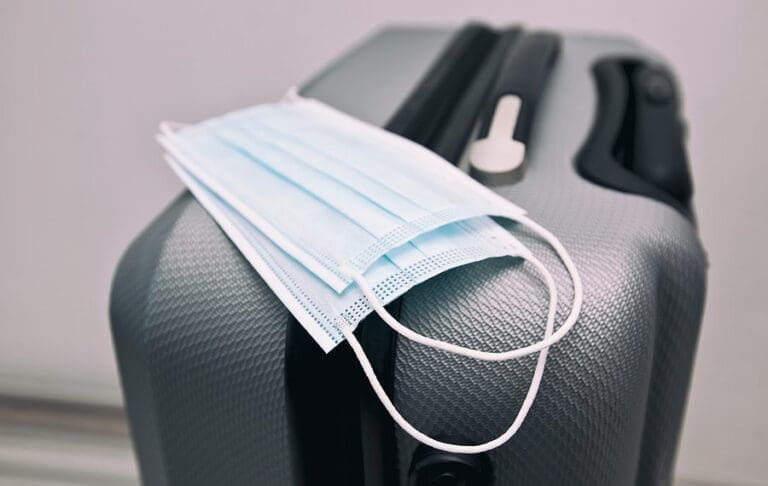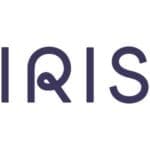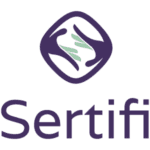 In light of COVID-19, many people had to cancel travel plans they were excited for – be it a weekend getaway or the trip of a lifetime. Either way, recent surveys show that people who can, will want to catch up on missed travel opportunities when the crisis subsides. This has led to the hotel and tourism industry hoping for a wave of ‘revenge travelling’ – people going on extra trips or splurging after the Corona crisis because they were deprived of that possibility for so long.
In light of COVID-19, many people had to cancel travel plans they were excited for – be it a weekend getaway or the trip of a lifetime. Either way, recent surveys show that people who can, will want to catch up on missed travel opportunities when the crisis subsides. This has led to the hotel and tourism industry hoping for a wave of ‘revenge travelling’ – people going on extra trips or splurging after the Corona crisis because they were deprived of that possibility for so long.
But will demand really bounce back as quickly as some seem to think? Will the way people can travel change greatly after this pandemic? And how should hotels prepare to welcome their first guests? We have some ideas for you:
Recent consumer surveys give hope
Wuhan’s lockdown is over, and travel is opening up around China again. Demand has been returning slowly and gives local and international hoteliers reason for careful optimism.
Marriott, for example, has reported that of the 90 temporarily closed hotels, 60 are now back in business. Yes, occupancy numbers are still low, but at least things are moving again.
A survey by Fliggy, Alibaba’s online travel platform, also reflects this trend for China. They asked people who cancelled trips because of COVID-19, if they were considering rebooking. 55% said yes.
Fuel Travel, a US-based hotel software provider and hotel marketing agency, got a similar response from over 10,500 participants of their recent survey. They found that 59% wanted to travel in 2020 and 14% in 2021. Only 3% said they wanted to stay home altogether.
But will people who want to travel also be able to?
How will travel look after COVID-19?
The virus is progressing differently around the world. In a nutshell, China and South Korea seem to have gotten through the storm while Europe is still in the thick of it. In the United States, things are only getting started.
This means that travel restrictions for some countries will stay in place for longer while other nations will start easing them soon. Regional differences are also likely as some areas within the same country will recover faster than others and be able to welcome visitors sooner.
While travel will become possible again, new travel requirements will probably be imposed. This could include proof of immunity for COVID-19 (or proof vaccination, once there is one), mandatory testing and/or quarantining upon arrival (already practiced in countries like Hong Kong and South Korea).
Since all of this comes with increased cost and hassle for travellers, domestic travel will pick up more quickly than international travel, because it is not subject to the above restrictions.
Another aspect that will change, is that travellers will value flexibility more than before. In case you have a very strict cancellation policy, now could be the time to offer more flexible options (possibly for an extra fee) as well.
How hotels can react and prepare
While it’s impossible to say exactly how and when demand will come back, we can be sure that it will.
After having been confined during lockdowns and deprived of going, people will want to travel and treat themselves. However, hoteliers must keep in mind that needs and expectations will have changed.
Here are ways you use the current downtime to prepare.
 1. Show guests what you’re doing to keep them safe
1. Show guests what you’re doing to keep them safe
With COVID-19 fresh in everyone’s mind, increased hygiene measures will be high on travellers’ priority lists. To show guests that you’re taking this seriously, tell them what you’re doing to create a sanitary environment.
Advertise your staff training on keeping the hotel clean and safe, share how often areas are cleaned and use PSAs to encourage guests and staff to follow handwashing guidelines. This information should be on your website, social media and be communicated in pre-arrival emails, so guests feel comfortable every step of the way.
2. Offer services built around staying safe and healthy
Since people will be more concerned about their health than ever, they will be interested in services and products to help them stay safe and healthy, even if some of them come at an extra fee.
Room service breakfast, for example, is extra attractive now since it offers the chance to avoid crowds at the buffet. A paid upgrade to this service could boost F&B revenues and give guests an option they are more comfortable with.
In the rooms, masks and hand sanitiser could become part of your amenity set. Alternatively, they can be offered as a paid add-on to generate ancillary revenue.
Services like airport transfers in sanitised cars are another way to combine an opportunity to make guests feel at ease with generating additional revenue at the same time.
3. Create an amazing experience
During lockdowns and travel bans, people were forced to stay home and were severely limited in how they were able to move around. This caused a lot of frustration for many and they will want to celebrate having their freedom back.
Others may have faced extra stress and workloads during this time (think of all the healthcare and frontline workers) and will finally be able to go for a hard-earned break.
As a hotelier, it’s your job now to create the best possible experiences for these guests. You can do this in two ways.
Create ‘treat yourself packages’ which allow guests to splurge on things they may not go for otherwise. This can include dinner at your fine-dining venue, a spa treatment, a special outing or all of the above. Allowing guests to customise their stay with special add-ons will not only make them enjoy their time with you more but will also give you the chance to increase average guest spend.
While revenue management experts advise against crazy discounts to protect your rates, you can still find ways to offer great value to guests, especially those who have been financially impacted during the crisis but still want to travel. This can include 3-for-2 offers for nights, meals or other add-ons or pre-paid vouchers with bonuses, e.g. buy an F&B voucher for $20 and get $25 or book a spa treatment and get a 20% discount at the snack bar. Feel free to get creative here!
Keep in mind, personalised and attentive service is always important, but it’s even more critical now. The first guests who come back will tell others how amazing their trip was and motivate them to travel as well. So, do your best to generate as much of this positive feedback as possible with excellent service and customised offers.
4. Start marketing early
While it’s a huge challenge, this downtime can also be an opportunity to review some of your processes, test new tools and implement improved systems so you are in better shape than ever when things pick up again.
This is especially true for your marketing. Now, while things are slow, you can start thinking about how to attract people when demand returns. Don’t wait for your competition to start advertising, get in the game yourself!
Firstly, keep an eye on your market and monitor what local authorities are saying about travel bans and lockdowns being lifted. This will help you create a timeline for your marketing efforts, so ads and promotions will be ready to go in time. Then, since you will be focusing on your domestic market first, create localised content and share it on channels popular in your country or region.
To gain traction in your immediate surroundings, leverage your F&B venues and start using apps like UberEats, Deliveroo or your local equivalent. Apart from boosting revenue, this can also help build your restaurant’s reputation in your city and grow your client base once things go ‘back to normal’.
These initial marketing efforts don’t have to be expensive. You can leverage your existing social media presence or start curating content to grow a new one. For example, you may already be on Facebook. Use your presence there to connect with your audience and update them on how your property is doing.
And how about engaging with your audience on Instagram or even via TikTok, that latest channel to skyrocket in popularity? This fun app now has an estimated 800 million active users a month and has quickly climbed to 7th place among the world’s most-used social platforms. Sounds like it’s worth a shot, right?
5. Place a strong focus on ROI and average spend per guest
Since at first occupancy will be lower than you’re used to, a strong focus on ROI and the average spend per guest is crucial for your business to survive and grow post-crisis.
Identifying where your most profitable bookings come from is the first step. Which OTA or agent do your biggest spenders book through? Where do you get the fewest cancellations? Whatever source it is, that’s where you should focus your marketing dollars to get more of these high-ROI bookings.
Next, you can encourage guests to spend more at your property by offering them relevant upgrades and deals. The more personalised your offer, the higher your conversion rates and the resulting revenue will be. For the best results, try a variety of deals for different groups of guests, analyze what works per segment and optimise your offers. This may seem like a daunting task, but that’s where you can use tools to help you quickly get good results with a strong ROI.
Don’t forget, this is not an ‘all or nothing’ situation. Every step you take can help your hotel do a little better when business comes back, so start taking action now!
About the author
 Clément Dénarié was classically trained as a Chef at the Thonon-les-Bains Hotel Management School, but he has since traded in his chef’s hat for the hotel tech world – with a full focus on innovative ways hoteliers can improve the guest experience. Combining his passion for (Total) Revenue Management, tech, and hyper-personalisation at Oaky, he likes to have thought-provoking conversations with hoteliers about the future of the hospitality industry.
Clément Dénarié was classically trained as a Chef at the Thonon-les-Bains Hotel Management School, but he has since traded in his chef’s hat for the hotel tech world – with a full focus on innovative ways hoteliers can improve the guest experience. Combining his passion for (Total) Revenue Management, tech, and hyper-personalisation at Oaky, he likes to have thought-provoking conversations with hoteliers about the future of the hospitality industry.






 1. Show guests what you’re doing to keep them safe
1. Show guests what you’re doing to keep them safe






















